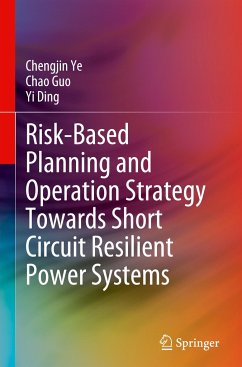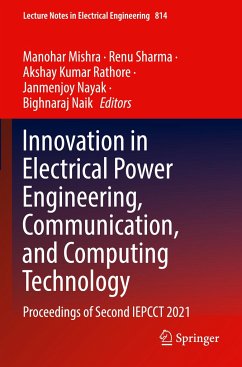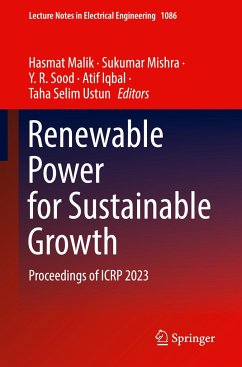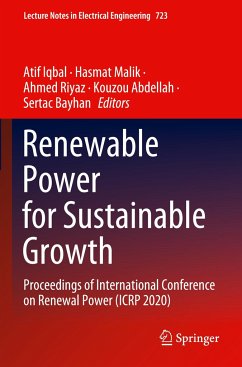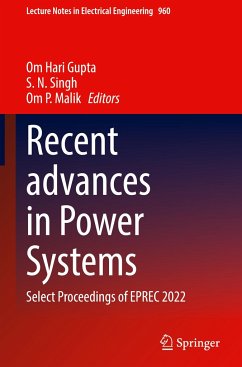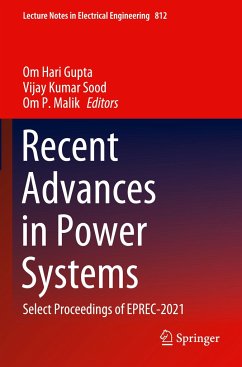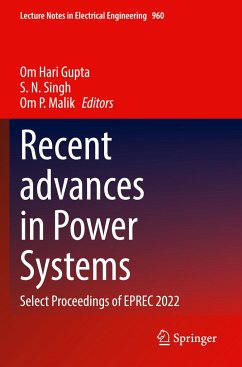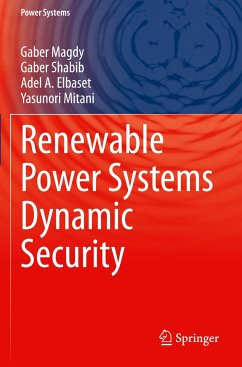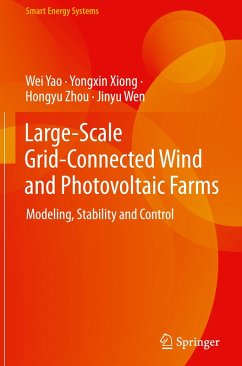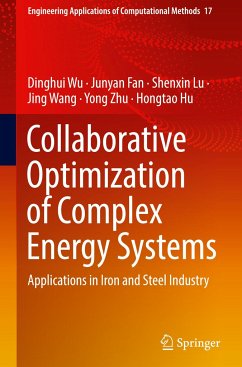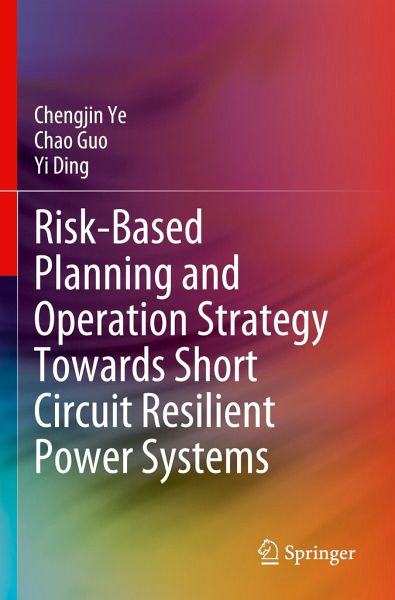
Risk-Based Planning and Operation Strategy Towards Short Circuit Resilient Power Systems
Versandkostenfrei!
Versandfertig in 6-10 Tagen
98,99 €
inkl. MwSt.
Weitere Ausgaben:

PAYBACK Punkte
49 °P sammeln!
This book focuses on the comprehensive prevention and control methods for short-circuit faults in power systems. Based on the quantification method of power system short-circuit fault risk considering extreme meteorological disasters, this book carries out theoretical research on optimal control of power system short-circuit faults at the planning and operation levels. The establishment of a comprehensive index system for short-circuit safety level of large power grids from several sides and the realization of a panoramic display of consequences of short-circuit faults in power grids are one o...
This book focuses on the comprehensive prevention and control methods for short-circuit faults in power systems. Based on the quantification method of power system short-circuit fault risk considering extreme meteorological disasters, this book carries out theoretical research on optimal control of power system short-circuit faults at the planning and operation levels. The establishment of a comprehensive index system for short-circuit safety level of large power grids from several sides and the realization of a panoramic display of consequences of short-circuit faults in power grids are one of the features of this book, which are especially suitable for readers interested in learning about short-circuit fault solutions in power systems. This book can benefit researchers, engineers, and graduate students in the fields of electrical engineering, power electronics, and energy engineering.



